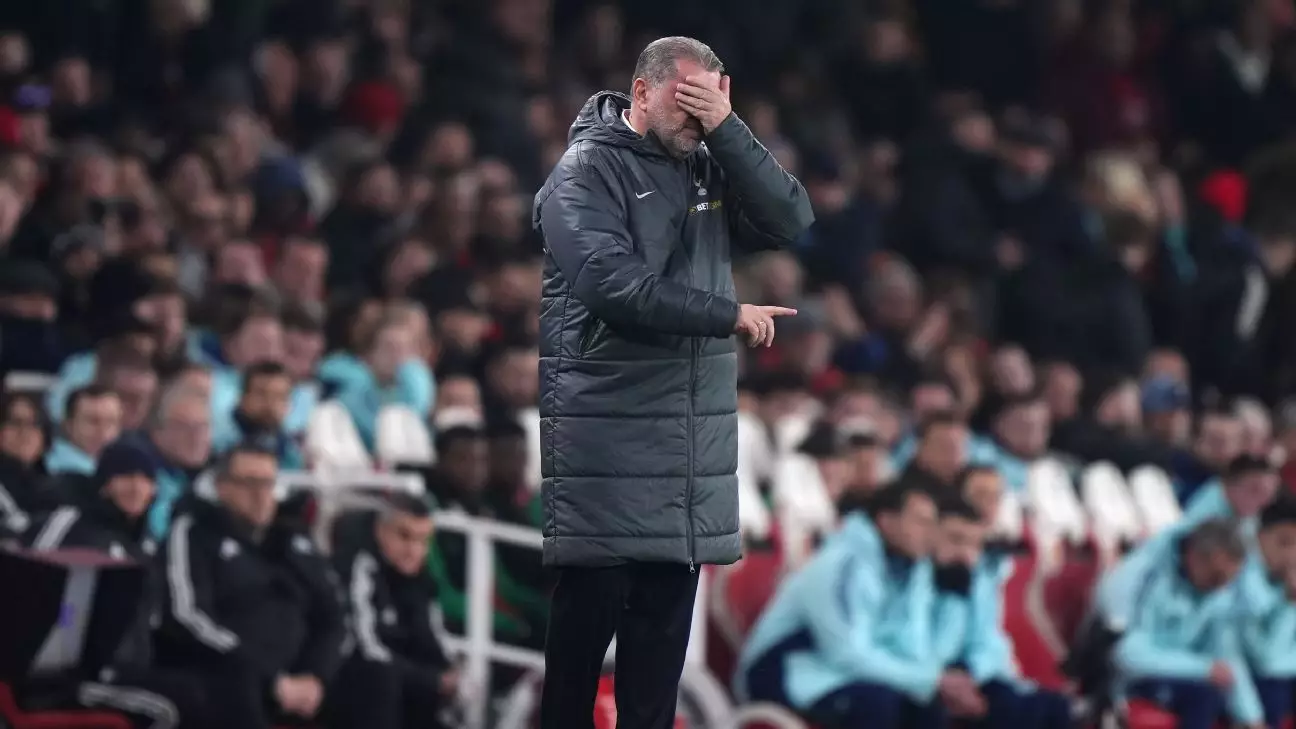Tottenham Hotspur’s recent 2-1 defeat to Arsenal has left a bitter taste for both players and fans alike. Following this crucial Premier League encounter, manager Ange Postecoglou’s disappointment was palpable as he expressed his desire for his players to feel hurt by the result. Having initially taken the lead through a stunning goal by Heung-Min Son, the team’s demise in the first half was particularly alarming, showcasing a lack of resilience and tactical awareness.
A First Half to Forget
The opening 45 minutes of the match were especially damning. What began as a promising display quickly deteriorated into a series of mistakes and lapses in concentration. Tottenham allowed Arsenal to seize control, resulting in two goals that underscored their vulnerability. The first equalizer—a tragic own-goal by Dominic Solanke—revealed defensive frailties that should have been addressed. Meanwhile, Leandro Trossard’s decisive strike just before half-time served as a clear indication of Tottenham’s inability to manage pressure situations.
Postecoglou’s scathing assessment of his squad was notable for its candor. He emphasized that the team’s performance was unacceptable and far below the standards expected of a Tottenham side aspiring for higher achievements. His comments about the players being “too passive” cast a shadow over their tactical approach. This passivity not only afforded Arsenal the luxury of dictating the game’s rhythm but also reflected a deeper issue: a possible disconnect between the players’ on-pitch execution and the coach’s philosophy.
In making tactical adjustments at halftime, bringing on James Maddison and Brennan Johnson, Postecoglou aimed to revitalize the team’s performance. Unfortunately, the changes did not yield the desired results. This raises questions about the readiness and adaptability of the players, further highlighting the challenges the squad faces in executing Postecoglou’s vision under pressure.
Beyond individual disappointments, the emotional tone set by Postecoglou is critical for establishing a culture of accountability within the club. Rather than allowing the players to find solace in the presence of young talents like Archie Gray and Lucas Bergvall—who played the full match—Postecoglou insisted on a collective reckoning. His message was clear: the spirit of competition and the pursuit of excellence must run deep within the club.
This loss serves not just as a wake-up call but as an opportunity for reflection. Moving forward, Tottenham must demonstrate a commitment to resilience and aggression—both with and without the ball. While the result may sting, it is essential that players and coaching staff alike use this disappointment as a driving force for improvement in the future. The journey ahead may require hard work and a steely resolve, but it is through overcoming such setbacks that Tottenham can hope to reclaim their competitive edge in the Premier League.

